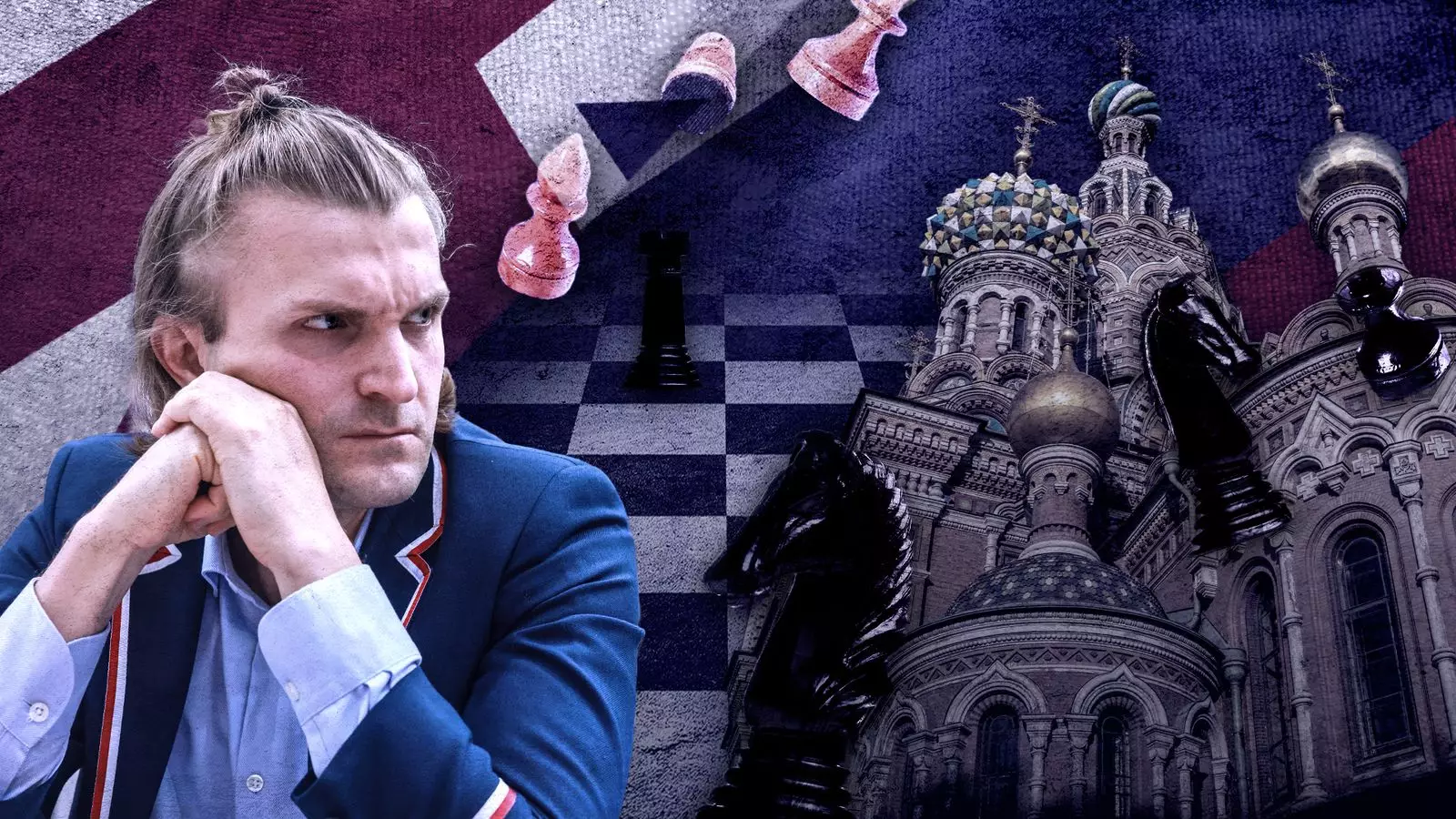Nikita Vitiugov, a prominent chess grandmaster originally from St. Petersburg, has made waves not only on the chessboard but also in the realms of political expression and national identity. In the wake of the war in Ukraine, he found himself at a crossroads that forced him to evaluate his values and his future. In a candid conversation, Vitiugov reveals how his decision to leave Russia and represent England as a chess player was not merely a change of flags, but a fundamental shift in his life’s purpose and identity.
The turbulence caused by the geopolitical tensions between Russia and Ukraine has led many Russian chess players, including Vitiugov, to speak out against the Kremlin’s actions. He recalls the weight of his decision as a profound moment in his life. “Acknowledging that Russia was no longer a safe home for me was heartbreaking,” he reflects. This sentiment resonates deeply with others who may have experienced the same conflict between their passion and their beliefs.
Since relocating to London, Vitiugov has found solace in the city that mirrors the dreary weather of his hometown. Here, he has created a new life with his family, embracing the freedoms that come with a different political landscape. “In the UK, you’re free to have your own opinion,” he states, highlighting the stark contrast to the oppressive atmosphere back home.
The chess community in England has welcomed him with open arms, not simply as a player but also as a mentor to the next generation. With his expertise and rich experiences, he is nurturing young talents, fostering a new environment for English chess to flourish. His arrival has injected a fresh layer of competition into the national scene, giving aspiring players a direct view of the level required for success.
Upon leaving Russia, Vitiugov’s transition to England marked more than just a personal transformation; it was a powerful statement against the war. While some players opted to represent countries like Serbia or Spain, Vitiugov’s choice to don the St George’s Cross became a symbol of his protest and belief in peace. As he humorously points out, Russian media’s portrayal of London as “the capital of hell” reflects the deep-rooted tensions and misunderstandings that have arisen from the conflict.
Despite the challenges that come with defying a regime, Vitiugov’s decision to speak out aligns him with other notable chess figures who have also denounced the violence. The chess federation he once belonged to has faced significant sanctions, exemplifying the consequences of national political stances on individual careers.
Once a celebrated figure in the Russian chess community, Vitiugov had dreams of contributing to the national team on an international stage. Now, he must reconcile his past achievements with his current identity as a player for England. Reflecting on this, he likens the experience to a painful divorce. “It was difficult to accept that part of my life was over,” he admits, underscoring the emotional turmoil involved in such a radical shift.
While he remains proud of his Russian roots, Vitiugov is equally determined to establish himself in his new country. He is now gearing up to participate in the prestigious London Chess Classic, an opportunity that will allow him to showcase his talent on an international platform. Competing in familiar yet transformed surroundings brings both excitement and anxiety as he ponders the potential to rise through the ranks once more.
As Vitiugov navigates his new path, he draws inspiration from legends of the past. He cites Viktor Korchnoi—a fellow grandmaster who defected to the West during the height of the Cold War—as a source of motivation. The comparison reveals Vitiugov’s understanding of chess as not just a game, but as a battleground for freedom and self-expression.
Furthermore, Vitiugov acknowledges the unique position he occupies in the chess world today. He serves as a trailblazer for Russian players who find themselves in similar predicaments, encouraging them to stand firm in their beliefs. The door to a new era is wide open as the chess community adjusts to a dynamic landscape shaped by these complicated geopolitical realities.
In summation, Nikita Vitiugov represents more than just a talented chess player; he embodies the voice of dissent, the struggle for identity, and the relentless fight for a future where peace prevails over conflict. Through his journey, both on and off the chessboard, he illustrates the power of resilience in the face of adversity.


Leave a Reply